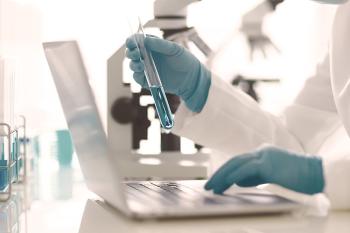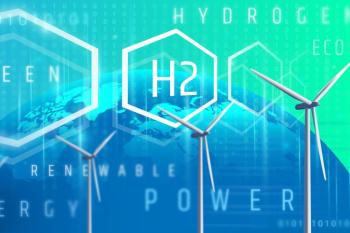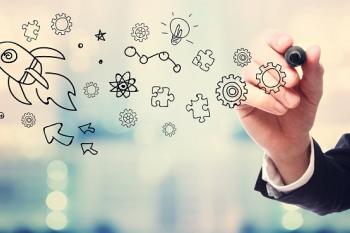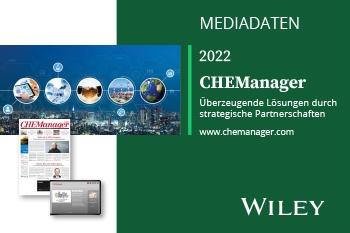Biotechnology Is about to Change Our Lives
Interview with Sang-Yup Lee on Biotechnology-driven Progress in Areas such as Healthcare, Nutrition, Energy and Materials
Biotechnology encompasses a broad range of technologies that employ living organisms or parts of them to make diverse products. For example, drugs and therapeutics, nutritional compounds, environmentally friendly chemicals and materials, biofuels, and novel functional materials can be produced through biotechnology. The World Economic Forum’s Global Future Council on (the Future of) Biotechnologies – part of the WEF’s Network of Global Future Councils – explores how developments in biotechnology could impact industry (especially agriculture, health, chemicals and materials), governments and society in the future. Sang Yup Lee, distinguished professor in the Department of Chemical and Biomolecular Engineering at the Korea Advanced Institute of Science and Technology (KAIST), is a co-chair of the Global Future Council on Biotechnologies. He explained to Ralf Kempf and Michael Reubold the potential of biotechnology to drive progress, solve problems and increase sustainability across all aspects of human life.
CHEManager: Professor Lee, what do you think are the big trends in the field of biotechnology right now?
Sang-Yup Lee: The trends are not very different from what they used to be. However, they are becoming more important in the fourth industrial revolution. There are so many exciting things happening thanks to the rapid advances in biotechnology. Considering the three fields of biotechnology – medical, agricultural and industrial – the big change nowadays is represented by a more sophisticated healthcare system, an agricultural sector that produces enough food and of higher nutritional value, and the sustainable production of materials and chemicals. These three fields will all play increasingly important roles in our everyday life. And, of course, environmental biotechnology is a major trend, because we are generating waste in many different forms and we must treat it in a responsible way. Biotechnology can be employed to degrade toxic or harmful chemicals and agents to solve environmental problems. There are sophisticated technologies being employed to advance biotechnology to levels that we have never seen before.
With technology becoming more sophisticated, can biotechnology help meet the rapidly growing demand for energy, food and healthcare while at the same time making the way we produce and consume products more sustainable?
S.-Y. Lee: Biotechnology could help address many global problems, such as climate change, an aging society, food scarcity, the growing need for energy, and infectious diseases, to name just a few. Because of the rapid development in a lot of the sub-technologies of biotechnology, all sectors are benefiting from this progress. And they are perfectly in agreement with the Fourth Industrial Revolution and the 17 United Nation Sustainable Development Goals. Growing concerns over limited fossil resources and associated environmental problems are motivating the development of sustainable processes to produce chemicals, fuels and materials from renewable non-food resources. Metabolic engineering and synthetic biology are advancing very rapidly. That has led to the production of many chemicals, fuels and materials from renewable biomass, rather than depending on fossil resources. Thus, they have become key enabling technologies for transforming microorganisms into efficient cell factories for these compounds.
Based on or driven by these developments, how is biotechnology about to change life for people especially?
S.-Y. Lee: Let’s start with some numbers. The current average human life expectancy is about 73 years – and it is still increasing. There are close to 600 million people who are 65 years and older. Annual healthcare spending around the world in 2018 is expected to be about $8 trillion. As society continues to age, it will be clearly impossible to sustain the present healthcare system with the technologies available today. We must do something!
We are all aware of the social problems of an aging society and challenges associated with diseases like dementia or Alzheimer’s disease. We have about 50 million Alzheimer’s patients world-wide and every three seconds there is a new dementia patient. If you extrapolate this scenario, we are going to have about 140 million dementia patients worldwide by 2050. How much will that cost? The world economy will collapse because of the aging society. Thus, I think that it becomes more important to prevent diseases. How are we going to ensure that people stay healthier during their longer lifespan? Well, in addition to regular exercise and good health behaviors, nutrition becomes very important. This is where biotechnology should intervene and develop new ways of supplying food that is nutritionally balanced and able to prevent diseases rather than treating diseases.
Of course, biotechnology has always been delivering drugs for treating diseases, but linking it tightly to medicine, food and nutrition will be its future. And this must happen in the near future. We should act now – otherwise we will be in trouble.
The same applies to sustainable production and consumption. I include consumption for obvious reasons, because it does not make any sense when consumers do not participate. In terms of production, we cannot rely on fossil resources – not only because climate change is one of the biggest problems and a global risk. We should also admit that raw materials are finite natural products. So, for example, fossil oil is currently estimated to last for only another 51 years. Coal and natural gas are expected to last another 150 and 53 years, respectively. Some people argue that we will discover new sources for those raw materials, but the rate of consumption is much higher than the rate at which these raw materials are produced or formed. So, eventually they will run short. How are we going to make all these plastics and others, even though we replaced all the fuels with renewable energies, such as solar and wind? What about the chemicals and materials? No matter how long you look at the sun, it will not give you chemicals and materials. You need to make them. But with what? Obviously, it comes from renewable sources such as non-food biomass and ultimately from carbon dioxide and that’s where biotech is already playing important roles but it will play increasingly important roles. We must consider those aspects.
Obviously, we can use fossil oil and natural gas for a much longer period by saving them to produce chemicals and materials, together much lower amount compared with fossil-derived fuels that can be replaced by renewable energy. Nonetheless, it is desirable to produce chemicals and materials from renewables as well to cope with climate change issue.
Do you think that biotechnology has the potential to revolutionize the raw material base of organic chemistry or can it produce only some platform chemicals?
S.-Y. Lee: Absolutely. So, a lot of them being organic, obviously because raw material is organic, plant biomass, algal biomass, organic waste, and so on; however, it is not restricted to organic substances only. Ultimately, carbon dioxide will be a raw material. We can also produce inorganic products. For example, we have been reporting the results of making metal nanoparticles, using the reversal of the mechanism of metal iron detoxification by microorganisms. So, those are inorganic materials. Of course, the cases are rare but still it is not confined to organic only. At least the organic chemicals we use every day, including a lot of polymers, can be addressed by the biotechnology revolution.
But this revolution is not only a scientific or a technical challenge because science and technology, in many cases, are already there so you can do those processes. To really make use of all the potential biotechnology has to offer, it also requires some actions from governments, regulatory bodies and the mindset of our society has to change as well.
S.-Y. Lee: Right! Take France as an example: the country has enacted a ban on all plastic dishes, cups, and utensils which goes into effect in 2020. From that date on, all disposable utensils and dishes must be made of bio-based, rather than petroleum-based, material. With a regulation like this imposed, the chemical industry cannot survive without changing. In the future, there will be more regulatory initiatives like this and when we have a more diverse portfolio of materials and chemicals, the bio-based chemical industry will blossom. That’s the only option left for the existing petrochemicals-based chemical industry.
One of the problems is that fossil raw materials are currently quite cheap, which makes it hard for bio-based materials to compete.
S.-Y. Lee: The reason why fossil raw materials are cheap is because we have been running this petrochemical industry for half a century or more. During that time period, obviously everything has been optimized and, of course, the raw material itself is not expensive either. The combination of that results in a relatively low price for chemicals and materials we use every day. But in the future, these will become scarce or run out eventually. But we need all these materials anyway. As biotechnology is further improving by using a lot of different tools and strategies, including systems metabolic engineering, production costs are being lowered significantly. Not all bio-based products are more expensive than the petrochemical route at this moment either; some are already competitive. But in the future bio-based routes will be the methods of choice – and maybe the only choice left to produce these chemicals.
What do you think are the most common prejudices of people who are sceptic about biotechnology that must be overcome? There are risks to some of the methods but of course the benefits that biotechnology can provide are much larger.
S.-Y. Lee: The GMO debate is the best example that triggered this kind of public controversy. I think that people who are active in the field of biotechnology did not properly communicate with the public and all the stakeholders.
Just like other emerging technologies, biotechnology offers the potential of enormous benefits but also potential risks, which we cannot predict with absolute certainty. But we must admit the potential risks whenever we find them. All these risks and challenges need to be addressed through dialogues among stakeholders including policy makers, experts, the public, and NGOs to map the risks and solutions. That is one of the things the Global Future Council on Biotechnology is studying by employing diverse expertise of council members – including scientists, engineers, lawyers, regulatory bodies and representatives from civil society – and through dialogues with cross-council members and other stakeholders. We need to ensure safety and security through regulation, but at the same time make sure we do not put unnecessary hurdles in place which slow down progress. The fact that biotechnology is increasingly recognized in society as a technology to improve the quality of life in a sustainable manner is the result of intensive communication efforts.
What would be the next steps science and the industry must take to promote biotechnology processes and to fully realize the potential of bio-production?
S.-Y. Lee: As already discussed, many of the currently available bio-based products are not yet competitive with the petrochemical route. For bio-based chemical production to really take off, it must compete with conventional chemical production on both price and performance. This goal now seems within reach, thanks to advances in systems metabolic engineering, a discipline that tweaks the biochemistry of microbes so that more of their energy and resources go into synthesizing useful chemical products. A lot of different technologies are available to design and improve enzymes. This enables higher conversion efficiency or even different metabolic pathways so that the yield can be increased from the level that found in natural organisms. A lot of effort is being made by many different groups around the world and that will eventually lead to more cost-effective production of a diverse portfolio of chemicals and materials.
With recent advances in synthetic biology, systems biology, and evolutionary engineering, metabolic engineers are now able to create biological systems that manufacture chemicals that are hard to produce by conventional means – and thus expensive.
The range of chemicals that can be made using metabolic engineering is widening every year. Although the technique is not likely to replicate all the products currently made from petrochemicals, it is likely to yield novel chemicals that could never be made affordably from fossil fuels.
But as biochemical production scales up to large industrial use, it will be important to avoid both competing with food production for land use and accidental releases of engineered organisms into the environment.
You spoke about the fourth industrial revolution and for many people this means Industry 4.0, digitization or digitalization, and artificial intelligence. But isn’t the fourth industrial revolution not really a blend or mix of all these technologies with biotechnology and chemistry?
S.-Y. Lee: Yes, indeed – they are heavily intertwined. Let me tell you about two different sectors. One is healthcare. If you talk about precision medicine, obviously you need to monitor one person’s lifestyle in addition to analyze his or her genome sequence, map the microbiome, and so on. It is through IoT already and of course, the bed or even the toilet are equipped with different sensors and the data will be collected and then artificial intelligence and big data analysis will result in better suggestions to doctors. Thus, diseases can be treated in a better way. Artificial intelligence – or AI – is already playing roles in my group for monitoring of all the possible drug-drug and even drug-food component interactions. That will be drastically changing how we take and prescribe drugs during the drug development process. You can disregard some of the chemicals or drugs that have proven useful but not good with another drug if taken together. This kind of result is already emerging and would not have been possible without using deep learning algorithms and today’s computational power. In the production sector, similar approaches can be taken to optimize the microbial performance and production bioprocesses.
That is fascinating. I remember a little talk you gave about the combination of traditional Asian medicine, which is also about nutrition, and the combination of biotechnology. This seems to be a big resource of knowledge that you can tap and exploit with biotechnology.
S.-Y. Lee: In five thousand years of Korean history, various mixtures of plants and animals have been used to treat or prevent diseases on a trial-and-error-based clinical testing. This knowledge and experience has been compiled 405 years ago by a physician named Hur Jun. The main problem with Western doctors is that they really hate traditional oriental medicine. They think that the brewage made from boiling mixtures of plants contain a lot of toxins that can cause kidney and liver damage. Therefore, they prefer to prescribe well-defined drugs like aspirin, to name just one.
However, after intensive analysis of all known compounds from natural plant extracts, particularly their metabolites, we discovered that they have a higher structural similarity to human metabolites than synthetic drugs. In additional studies we discovered synergistic combinations of compounds, that showed a much higher efficiency to treat certain diseases. You can say that traditional oriental medicine takes a multi-component multi-target-based approach, rather than the current single-target single-molecule type of therapy approved by Western regulatory bodies. The human body is a highly complex system and therefore it is nonsense to try to treat diseases with one single molecule. What was done for hundreds of years based on experience and observation in many different countries has been underestimated for its values. Thus, we are revisiting to identify multi-target, multi-component interactions at systems level, and this approach will change again not only how we prescribe a medicine or mixture but also, as you already mentioned, how to design better nutrition.
We spoke about the topic of sustainability. In terms of environmental sustainability, which is also covered in the UN Sustainable Development Goals, biotechnology can really revolutionize the way we live and produce materials. Do you have a vision of how – and when – biotechnology will become a given in our lives when we really tap into its full potential?
S.-Y. Lee: By 2030, I think it is realistic to say that biotechnology will become a part of our life, from drugs, medicine and therapeutics to environmentally friendly chemicals, fuels and materials. We have talked about the role of biotechnology in the sustainable production of materials and the treatment of waste. It is expected that an increasing number of chemicals and materials will be efficiently produced from renewable resources by microorganisms developed by systems metabolic engineering. Major systems metabolic engineering achievements in recent years include microbial production of not only amino acids and drugs, but also bulk chemicals like 1,4-butanediol, succinic acid, and polymers.
The human life-style generates a lot of waste. But the waste decay processes are neither done by humans nor machines; they are mostly performed by a collection of microorganisms. In my opinion, we need to better analyze the so-called waste treatment microbiome or at large the environmental microbiome, which can be different from one location to another, one country to another. So, it should be locally analyzed depending on the particular waste stream. For these analyses an enormous amount of data needs to be monitored, because in every location the temperature is different, the nutritional content is different, everything is different. Today we are able to intervene and to accelerate a better design of the waste microbiome, to give just one example. If we combine all these efforts in the different sectors we would have a much cleaner environment.
Eventually, biotechnology will become as common as having a cellphone or going online. There is going to be an even larger number of biotech companies, both big and small, along with an increasing number of venture companies.
Many of the inventions of mankind made in the last couple of centuries have proven to be little sustainable. If you had a reset button or a time-machine, how far back in time would you travel to reverse some of these dead-end technologies?
S.-Y. Lee: You are asking this question to the wrong person because I do not want to go back in time. But to answer your question, I would say that I do not want to go to the era before the petrol chemical industry because even though we are sort of attacking the bad things resulting from petrochemical industry due to the climate change, etc., but without the petrochemical industry it would not have been possible to enjoy our current standard of living. The petrochemical industry has definitely revolutionized the human living style. However, now we have to look back. We did make some mistakes because we could have done much better. For example, we could have used only a limited amount of the earth’s fossil resources while also using sustainable routes and we could have reduced or even prevented the environmental bad outcomes. I would go back to, say, about maybe thirty or forty years and then try to convince people to rebalance the whole system and make it much more sustainable.
Part of the progress we make and some of the resulting advantages come with a downside and it’s all about handling and managing disadvantages while making use of the advantages of science and technology.
S.-Y. Lee: Right. And most importantly we all should try to be frugal. We are eating and wasting so much. I think being frugal is one of the key points which can address a lot of different problems including food shortage and even health. We waste about half our food eventually. Of course, it’s not fault of science, it’s because of insufficient logistics, but of course science can help to solve logistics issues as well – especially if using all the core technologies of the fourth industrial revolution.













